-
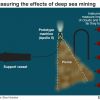 +3 +1
+3 +1Electric car future may depend on deep sea mining
Demand is soaring for the metal cobalt, an essential ingredient in batteries and abundant on the seabed.
-
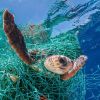 +17 +1
+17 +1Huge amounts of abandoned fishing gear litter the world's oceans
Hundreds of thousands of tonnes of lost, abandoned and discarded fishing gear litter the world’s oceans. In some areas, this gear accounts for 30 per cent of the catch, trapping turtles, seabirds and whales as well as commercially fished species.
-
 +19 +1
+19 +1Thousands of ships fitted with ‘cheat devices’ to divert poisonous pollution into sea
Experts say this could have a devastating effect on wildlife
-
 +16 +1
+16 +1As great white sharks disappear, Cape Town searches for answers
Cape Town residents don't know who to blame for the disappearance of their great white sharks, which haven't been seen this year in False Bay.
-
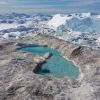 +4 +1
+4 +1Islands Could Become Uninhabitable As The Ocean Warms At An Alarming Rate, Report Says
The world's oceans are warming at an alarming rate, melting glaciers, depleting fish populations, supercharging tropical cyclones, and threatening the livelihoods of millions of people who live in coastal areas and the Arctic, according to a new report from the United Nations' body in charge of monitoring climate change.
-
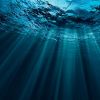 +17 +1
+17 +1The World’s Oceans Are Losing Power to Stall Climate Change
The world’s oceans have long helped to stave off climate change by absorbing heat and carbon dioxide from the atmosphere. But that is changing, with devastating consequences for humanity in the coming decades, leading researchers warn in a high-level report commissioned by the United Nations.
-
 +34 +1
+34 +1Scientist Just Identified a Tiny New Species of Shark That Glows in The Dark
We all know sharks have had a bit of an undeserved bad rap (thanks Jaws!). But if you're one of those people who find sharks scary, this newly identified species of pocket shark might just change your mind.
-
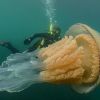 +8 +1
+8 +1Giant jellyfish spotted by divers off English coast
A giant jellyfish the size of a human has stunned a diver off the south-western coast of England.
-
 +15 +1
+15 +1Scientists have discovered a sea of fresh water under the ocean
Thousands of years ago, glaciers covered much of the planet. Oceans receded as water froze in massive sheets of ice blanketing the North American continent. As the ice age ended, glaciers melted. Massive river deltas flowed out across the continental shelf. The oceans rose, and fresh water was trapped in sediments below the waves. Discovered while drilling for oil offshore in the 1970s, scientists thought these “isolated” pockets of fresh water were a curiosity. They may instead prove to be a parched world’s newest source of fresh water.
-
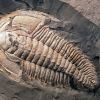 +8 +1
+8 +1A giant species of trilobite inhabited Australian waters half a billion years ago
There is evidence to show this monster of the ancient sea was a cannibal, feeding on its own kind.
-
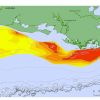 +8 +1
+8 +1The Gulf could see one of the largest dead zones in history this year
The Gulf of Mexico could see one of its largest dead zones on record this summer, according to researchers.
-
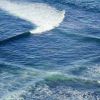 +11 +1
+11 +1This Is a 'Cross Sea'. You Do Not Want to Get Caught in One
They say you should never turn your back on the ocean, but what if the waves are coming from all sides? This is what happens when an unlucky swimmer or boater gets caught between two opposing swells, known as a cross sea.
-
 +35 +1
+35 +1Climate change profoundly alters plankton populations
New research using sediment cores suggests human-driven climate change is having a significant impact on the composition of the world’s marine plankton. A German study, published in the journal Nature, reveals that modern communities of foraminifera, a type of hard-shelled plankton, differ markedly from those from the pre-industrial era, which began just 170 years ago.
-
 +8 +1
+8 +1The alarming trend of beached whales filled with plastic, explained
Another dead whale has washed ashore with a belly full of plastic. This week, the carcass of the young sperm whale, estimated to have been 7 years old, was found on a beach in Cefalù, Italy. Investigators aren’t certain whether the plastic killed the whale. But it’s part of a gruesome pattern that’s become impossible to ignore. In April, a pregnant sperm whale washed up on a beach in Sardinia with nearly 50 pounds’ worth of plastic bags, containers, and tubing in her stomach.
-
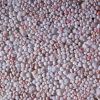 +45 +1
+45 +1Plankton Haven’t Been the Same Since the Industrial Revolution
Changes in plankton populations over the past centuries correlate with rising sea temperatures
-
 +26 +1
+26 +1A Shark Vomit Study Shows They've Been Eating a Totally Unexpected Animal
Sharks are pretty eclectic eaters. They'll go for prey ranging from fish and invertebrates to sea mammals and turtles. A shark may even have a chomp on the odd surfer. If they can catch it, or scavenge it, and it's made of meat, sharks will generally
-
 +7 +1
+7 +1As oceans warm, microbes could pump more CO2 back into air, study warns
A new study suggests that CO2 regeneration may become faster in many regions of the world as the oceans warm with changing climate. This, in turn, may reduce the deep oceans' ability to keep carbon locked up. The study shows that in many cases, bacteria are consuming more plankton at shallower depths than previously believed, and that the conditions under which they do this will spread as water temperatures rise.
-
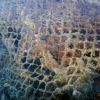 +16 +1
+16 +1'Ghost nets' to be tracked and removed from the sea
Lost nets and fishing gear could be removed from the ocean using new technology in a move that would help reduce the risk of sea life being injured or dying from human debris in the ocean. Known as "ghost nets", the equipment can choke coral reefs, damage habitats, trap fish, birds and mammals. The nets also break down over time, adding to the amount of microplastic (plastic less than 5mm long) clogging up the sea and finding its way into the food chain.
-
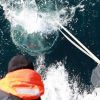 +13 +1
+13 +1Almost 200,000 Never-Before-Seen Viruses Were Just Discovered Hidden in Our Oceans
The oceans hide all kinds of secrets and unknowns in the deep – like the 195,728 viruses that scientists just found lurking underwater, during the course of a pole-to-pole expedition carried out to survey marine life. The researchers say the vast m
-
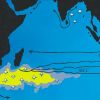 +5 +1
+5 +1There's no 'garbage patch' in the Southern Indian Ocean, so where does all the rubbish go?
Great areas of rubbish -- known as 'garbage patches' -- are known to form in the Pacific and Atlantic oceans, but not the southern Indian Ocean. Why is that?
Submit a link
Start a discussion




















